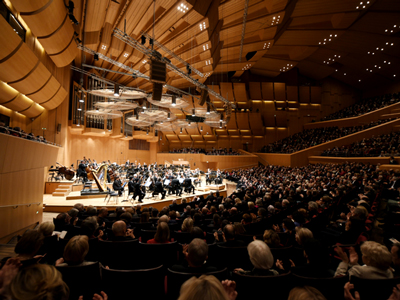
By ANDREW POWELL
Published: May 31, 2013
MUNICH — Young Finnish conductor Pietari Inkinen waved his arms heartily this week for Kullervo, leading the Munich Philharmonic at the Gasteig concert hall. It wasn’t enough. Sibelius’s impassioned sequence of tone poems (1892) demands wily control of dynamics and balances, and an intermittent spotlight on half-hidden themes. How else to correlate five epically inclined “movements,” two of them vocal, with thin melodic ties and scant symphonic argument?
As performed on May 28, the second and fifth movements (Young Kullervo and Kullervo’s Death) overstayed their welcome, and the 26-year-old composer’s closing apotheosis missed its mark. The painterly start and Brucknerian flashes of the first movement (without programmatic title) did compel attention, helped by eloquent string playing, but the fourth movement’s bucolic refrains, well forward, negated its supposed devotion to war.
Kullervo and His Sister, the central, longest and strongest of the movements — authorized by Sibelius for standalone performance — contrasted the matronly sound of Monica Groop’s mezzo-soprano (sibling and rape victim in this sorry Kalevala tale) with Jukka Rasilainen’s virile, resplendent Heldenbariton. Here and in the last movement, the score needs a substantial men’s chorus, for lines mostly unison. The combined voices of the Philharmonischer Chor München and Helsinki’s 130-year-old Ylioppilaskunnan Laulajat fit the bill thrillingly, even if they could not disguise Inkinen’s unpersuasive approach.
Photo © Andrea Huber
Related posts:
Flitting Thru Prokofiev
Honeck Honors Strauss
St John Passion Streams
Mahler 10 from Nézet-Séguin
Bieito Hijacks Boris
Tags: Gasteig, Jukka Rasilainen, Kullervo, Monica Groop, München, Münchner Philharmoniker, Munich, Munich Philharmonic, Philharmonischer Chor München, Pietari Inkinen, Review, Sibelius, Ylioppilaskunnan Laulajat